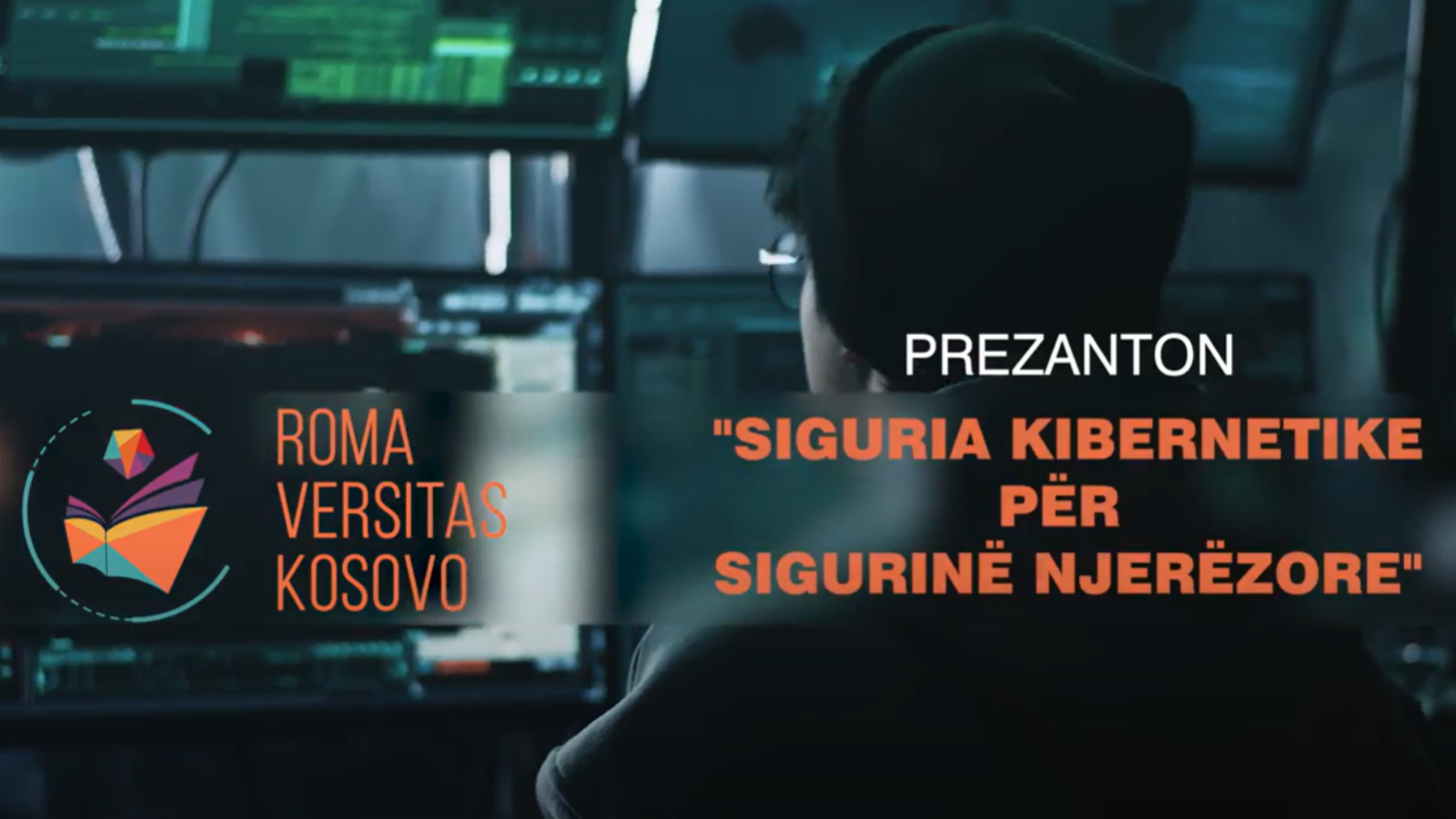Our cooperating partner Roma Versitas Kosovo presents “Cybersecurity for human safety” which refers to the measures and practices implemented to protect individuals and their well-being in the digital world. This includes protecting personal data, preventing unauthorized access to systems, and mitigating potential risks and harm that may arise from cyber-attacks.
When addressing the communities and youth in Kosovo, it becomes evident that over 18,000 diverse issues have been reported related to the misuse of social networks, leading to legal problems. Among these issues, arrests have been made for the dissemination of false and hateful materials, unauthorized photos, fraud, and pornographic content. Acts of violence through messages and posts have also been reported, emphasizing the urgent need for protective measures.
Adriana Gashi, investigative journalist shares her perspective: “I use social networks extensively in my daily work. They have been essential in helping me discern family connections and potential instances of nepotism within political parties. I think, children are at risk on the internet due to various potential dangers and threats present in the online environment. These risks may include exposure to inappropriate content, cyberbullying, online predators, identity theft, and other harmful activities. The statistics are alarming, as they engage in meetings with unfamiliar individuals.”
In the legal field, lawer Labinot Vata, draws attention to the crucial importance of reporting false information circulating on social networks to the police. He added that despite being an integral part of these platforms, minorities often refrain from reporting.
Tanzer Abazi, a cybersecurity expert, provides insights into the complexities of the internet: “The internet is a jungle of cyber viruses. There are key elements for protection like adopting a ‘zero trust’ approach, meaning not trusting any entity on the internet, ensuring regular updates of applications and lastly following principles, and procedures.”
Mihane Fetahu, psychologist points out that parents need to foster an environment where children feel comfortable discussing their online experiences. Setting age-appropriate boundaries, monitoring online activities, and using parental controls are crucial steps in guiding their internet usage.
Avni Mustafa from Roma Versitas Kosovo stated that there is a notable concern within the Roma community as they seem to limit their online presence only to Facebook, largely excluding themselves from the broader internet.
In conclusion, as the digital landscape expands, the stories from Kosovo illustrate the immediate need for awareness, education, and collaborative efforts to ensure the safe navigation of the cyber world, particularly for the youth and diverse communities.
Check out the video here: “Cybersecurity for human safety”








